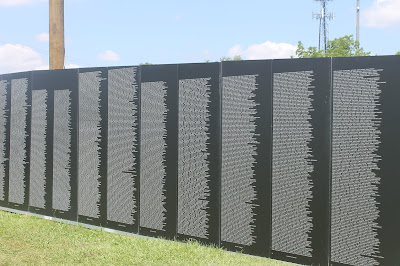The battle in which the U.S. Military claimed as a victory had turned into a political disaster. The Tet Offensive lead to a huge shift in public opinion against the war and a change in government policy.
The plan from that point on was to strengthen, re-train and re-equip the South Vietnamese and the ARVN to allow American troops to withdraw and allow South Vietnam to survive on its own. The government knew it would backfire. They knew South Vietnam's survival was futile, but the longer U.S. troops stayed in Vietnam, it brought more public pressure which kept demonising the government.
By 1973, the majority of U.S. ground troops had left the country, and as predicted, the strategy was futile. The South Vietnamese couldn't hold back the Communists and in April 1975, the North Vietnamese took Saigon.
The War was over. Saigon had been renamed as the capital to this day, Ho Chi Minh City, and the country was reunited with the Communists in power.
Over a million Vietnamese people died during the Vietnam War, but the horror still didn't end in 1975.

When the Communists took control, huge numbers of South Vietnamese fled fearing the new regime as the U.S. Military made one last attempt to evacuate as many of them as possible along with any American personnel that was still present.
Vietnamese went out by booking flights full and the Defence Attache Office began flying out nonessential personnel to Clark Air Base in the Philippines.
Operation New Life evacuated over 130'000 Vietnamese refugees that were transported to Guam for resettlement.
In Operation Frequent Wind, more than 7'000 people were evacuated by helicopter many areas of Saigon including the U.S. Embassy to Aircraft Carriers. In that stage, there were too many people to evacuate and not enough room on the ships that helicopters were tossed overboard or landed on the ocean.
In that same year, a Third Indochina War broke out between neighbouring China and Communist united Vietnam which lasted until late October 1991. By the end of all of that, the country the Viet Minh called home had been virtually destroyed by one of the 20th Century's longest wars.
Most Americans had joined the war believing they were fighting for a Just Cause. By the war's end, 58'318 Americans were dead, and the country was divided, embittered and disenchanted.
Some Americans still argue hard as to whether if the terrible price they had paid for this war had really made any effect on the global advance of Communism. What is true is that in spite America's failure in Vietnam, Communism far from taking over the world had suffered from one set back after another, but the horror which followed Tet was a branded scar which burnt itself deep into America's soul.
What I think is that if this time in history teaches anything, it's that wars can quickly turn into quagmires if not prosecuted effectively. But no matter what I can say, history will eventually repeat itself in many parts of the world. If you can't make any noble promises for the hearts and minds of people that you're sworn to fight for, then you have no business waging war.
Another lesson is that when you watch the news, remain wary about your country getting itself embroiled in other foreign wars for fear of another Vietnam, the same way you would be wary about jumping into a different job.....
"The horror... The horror..."





